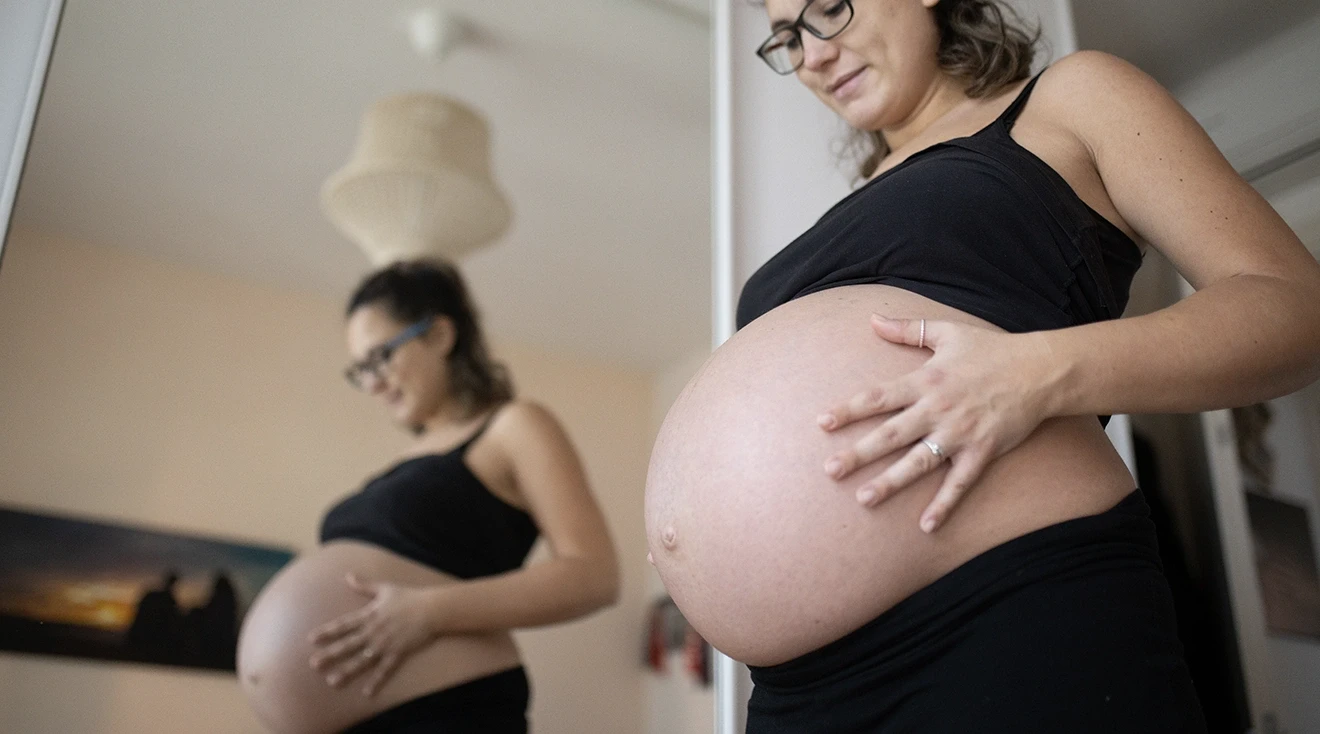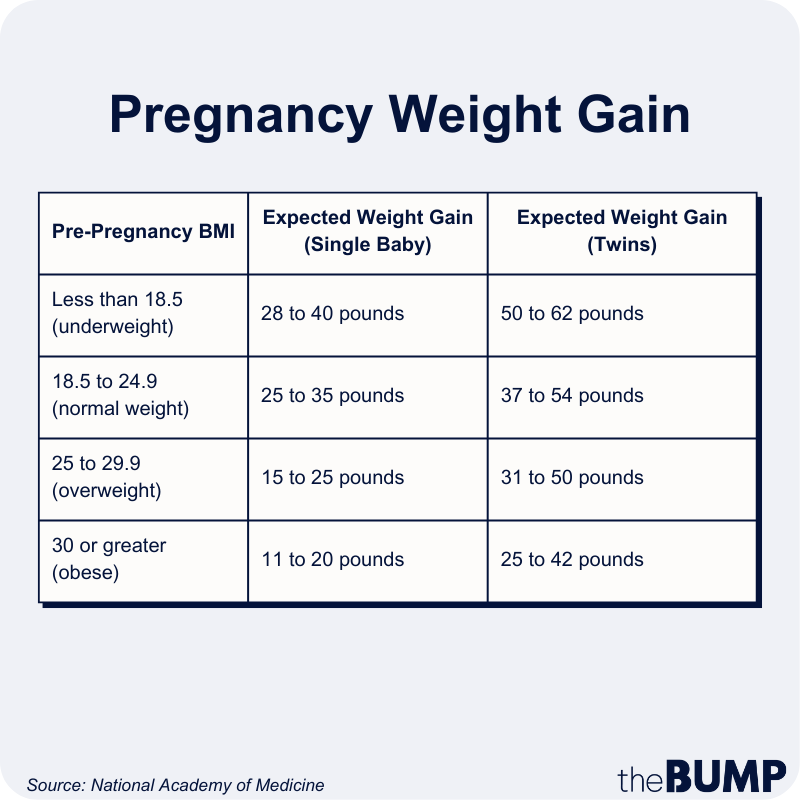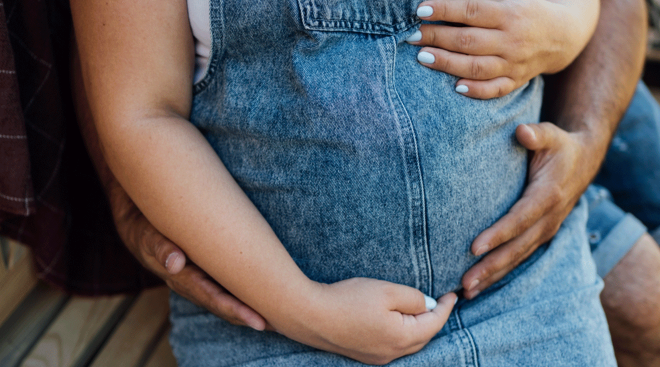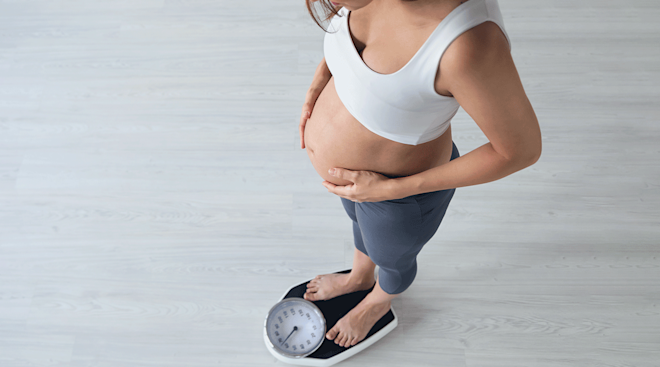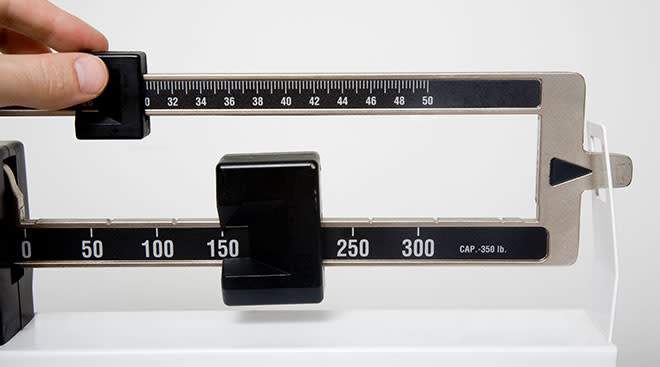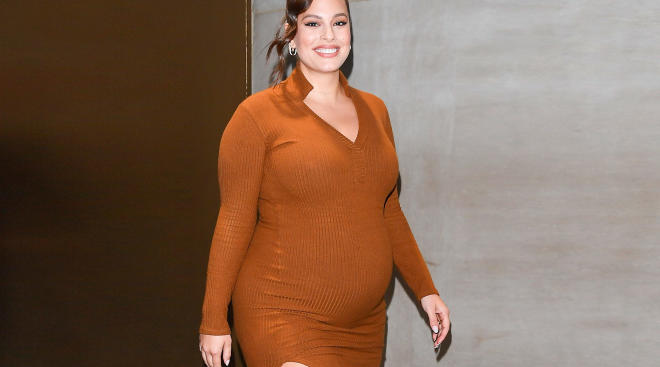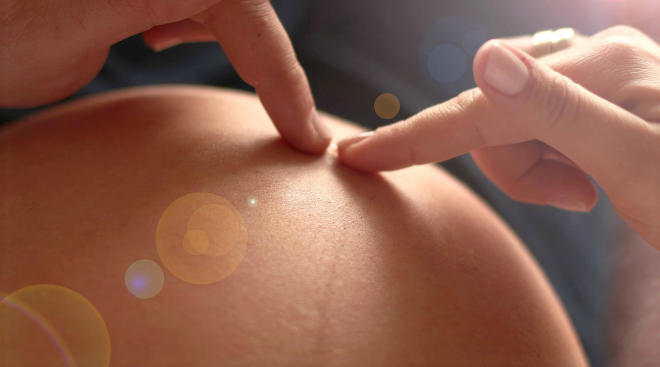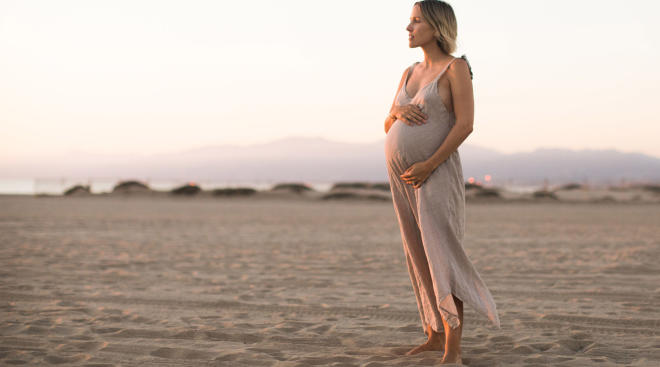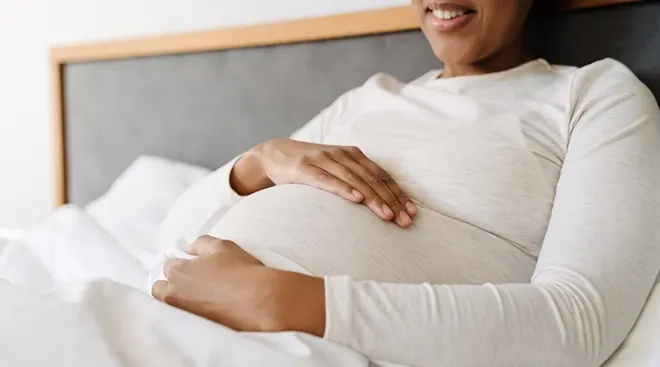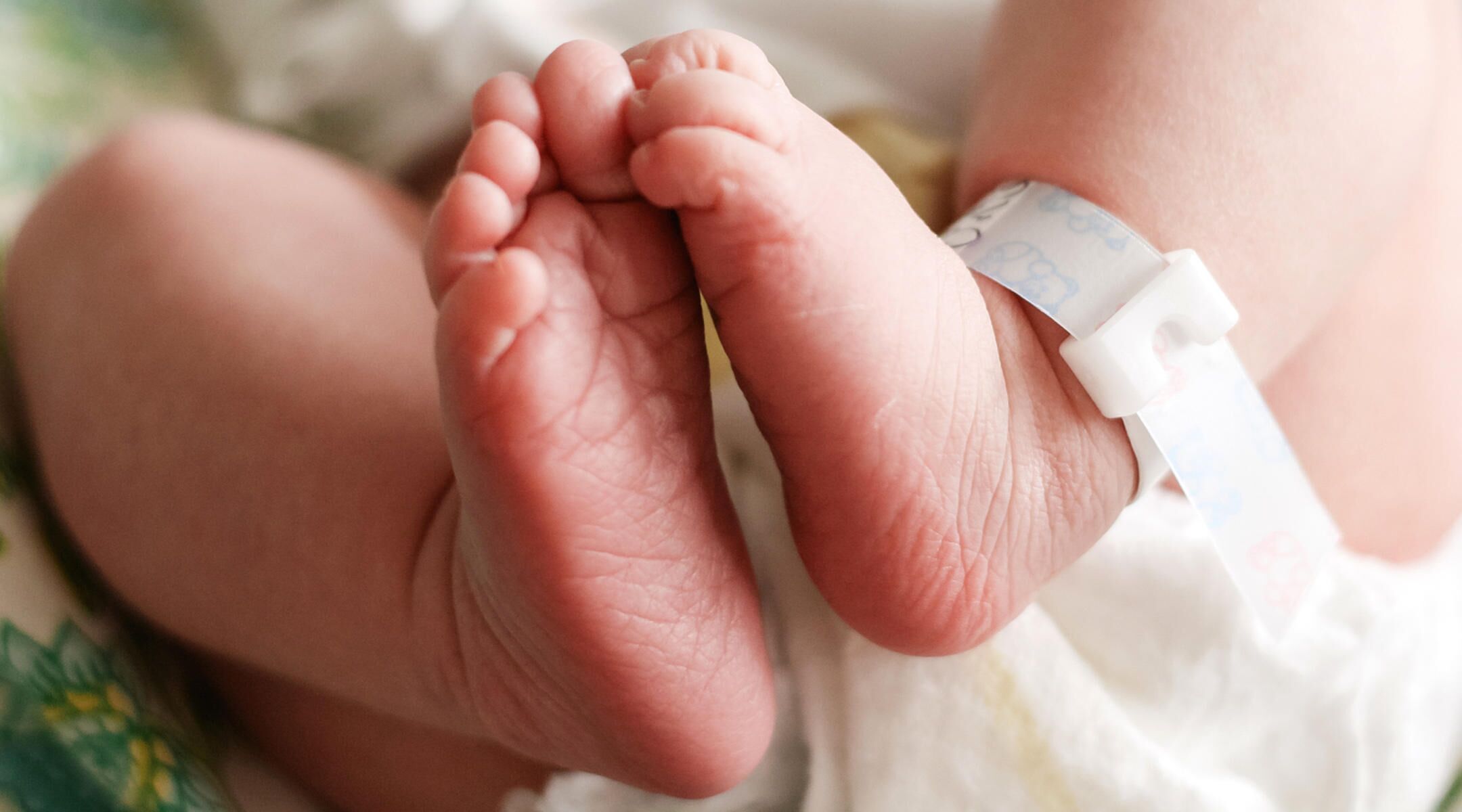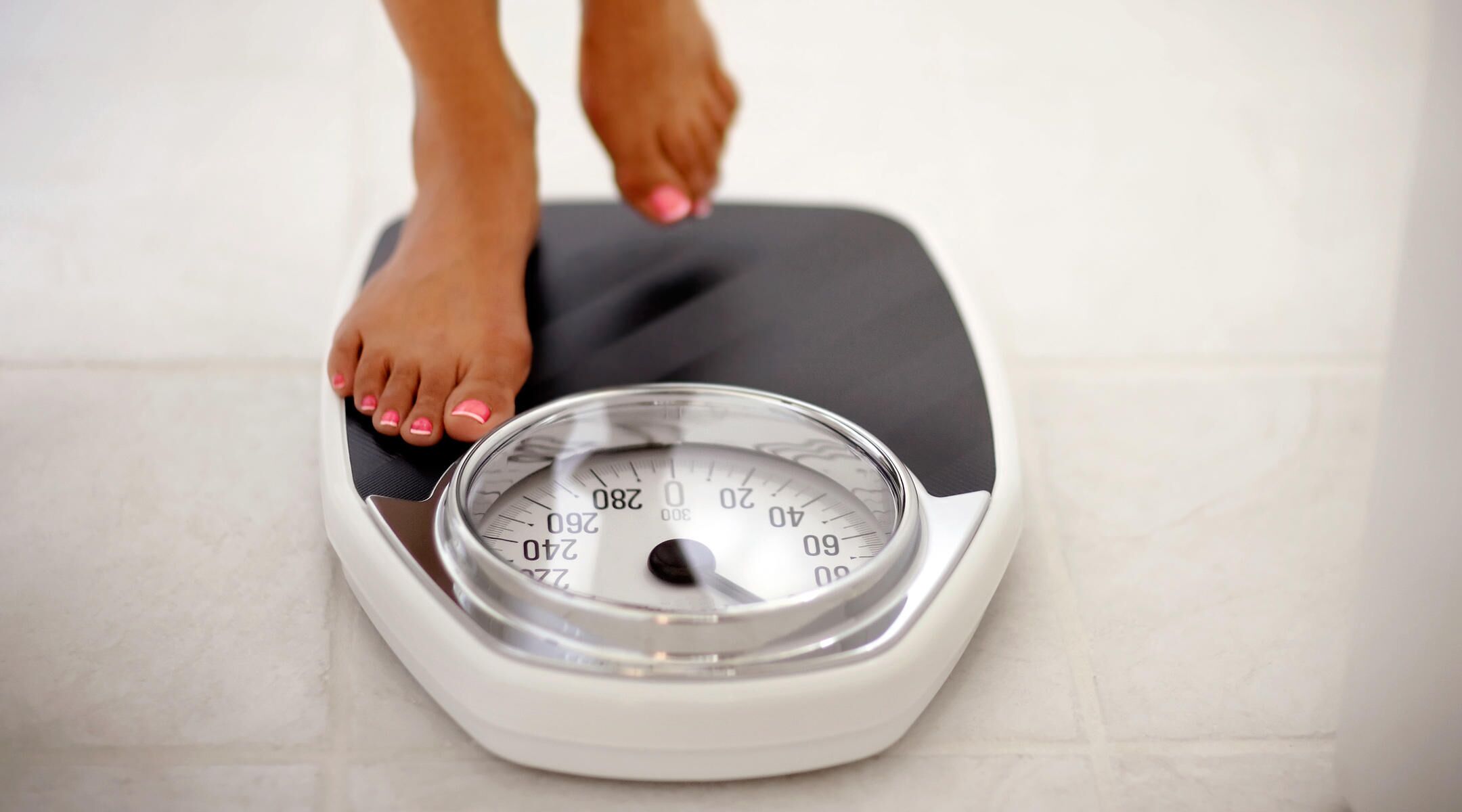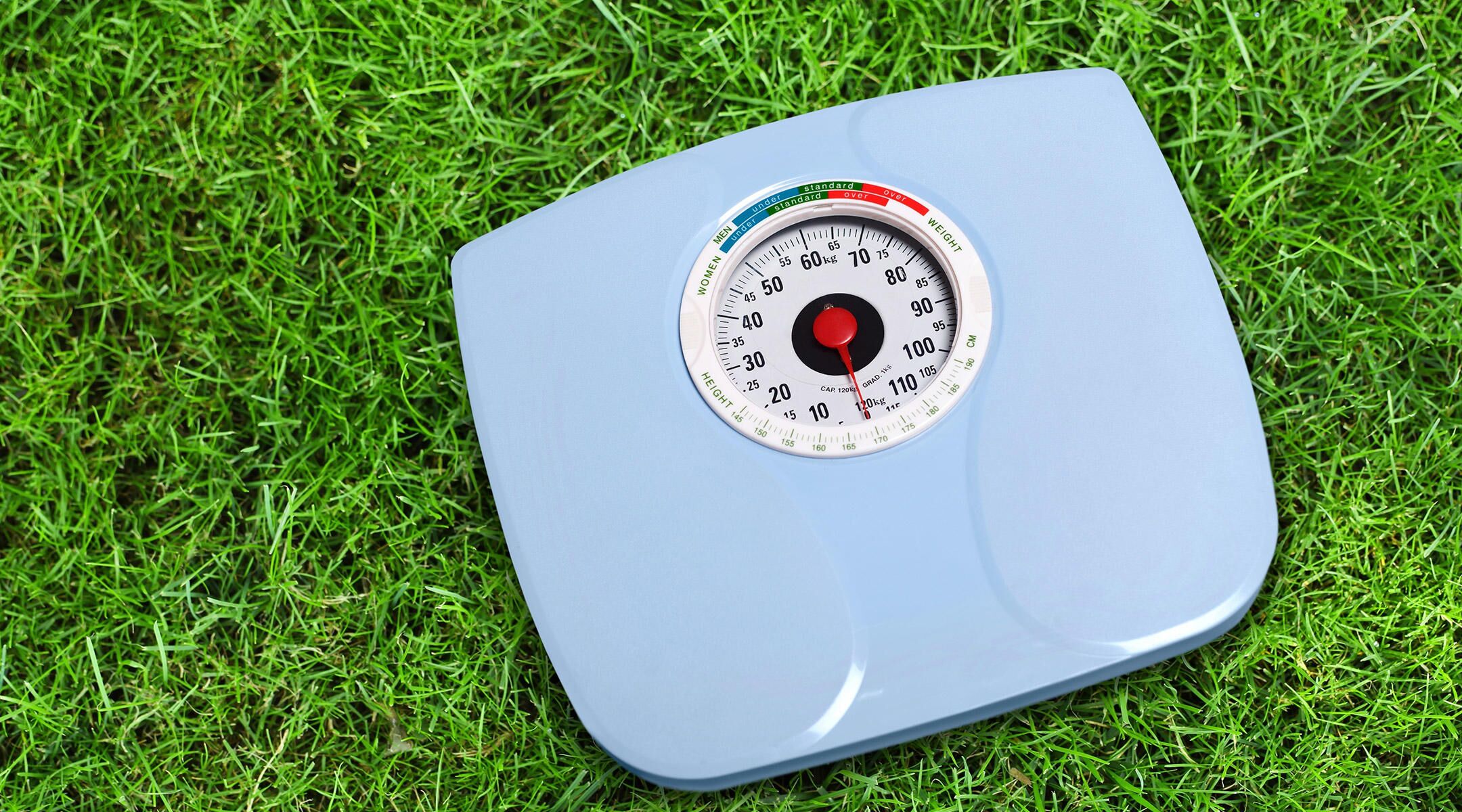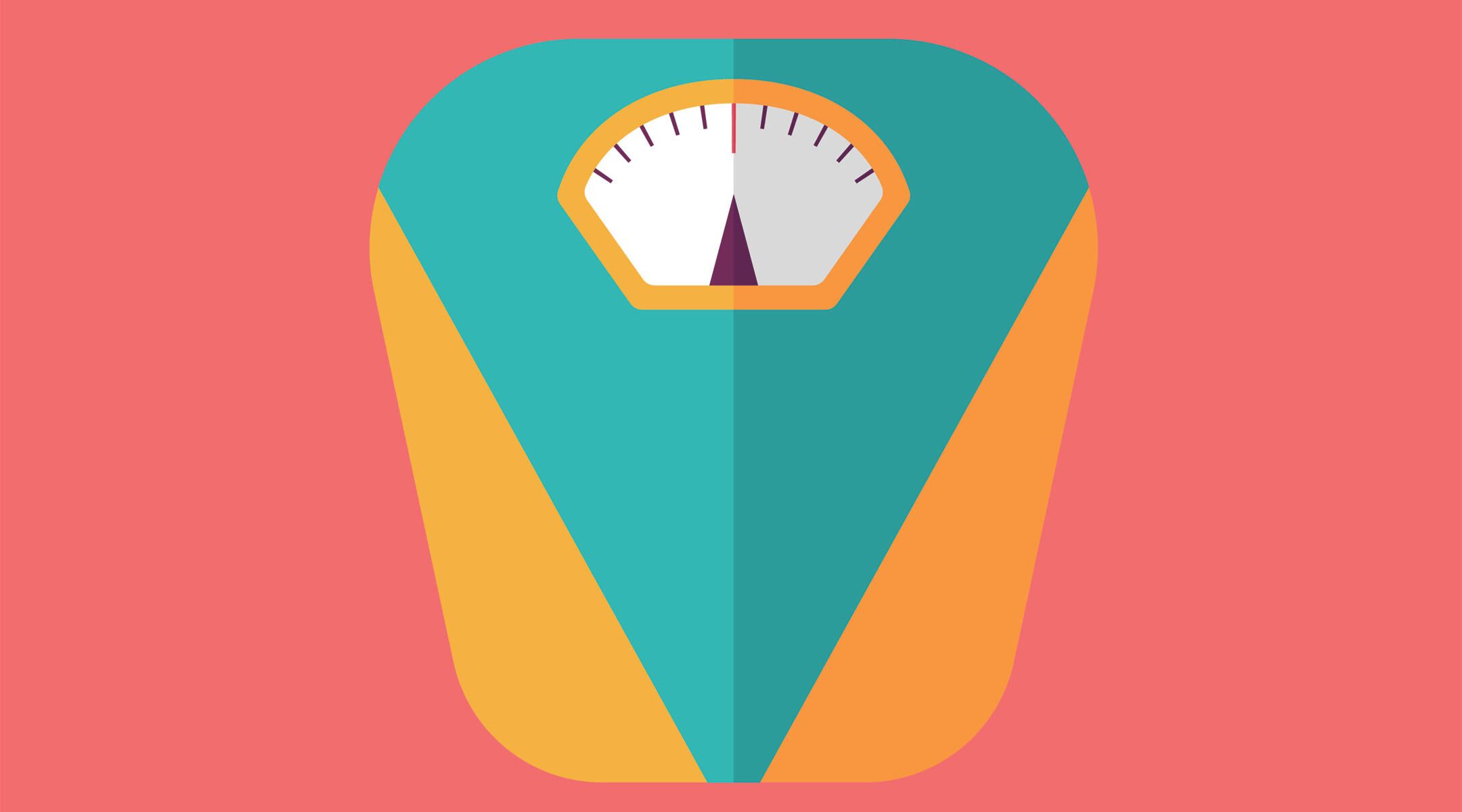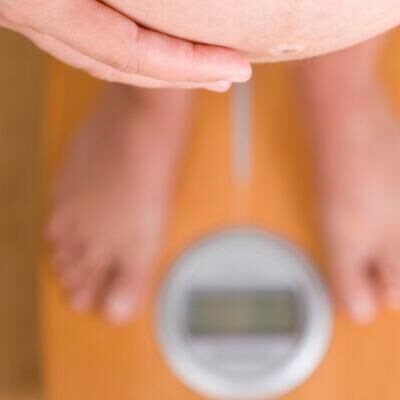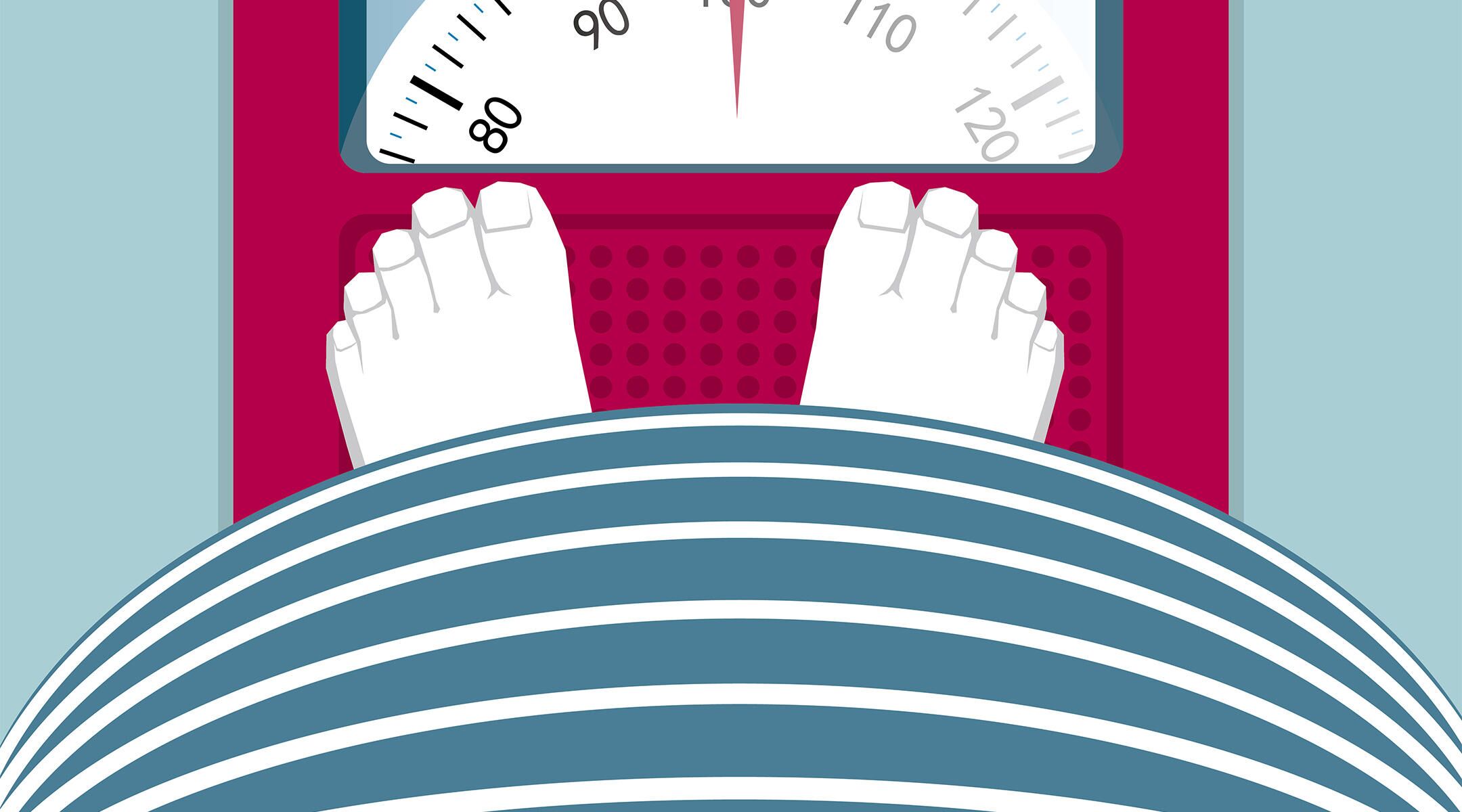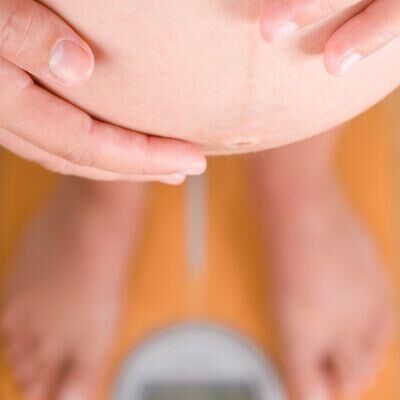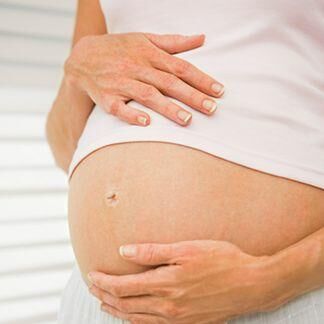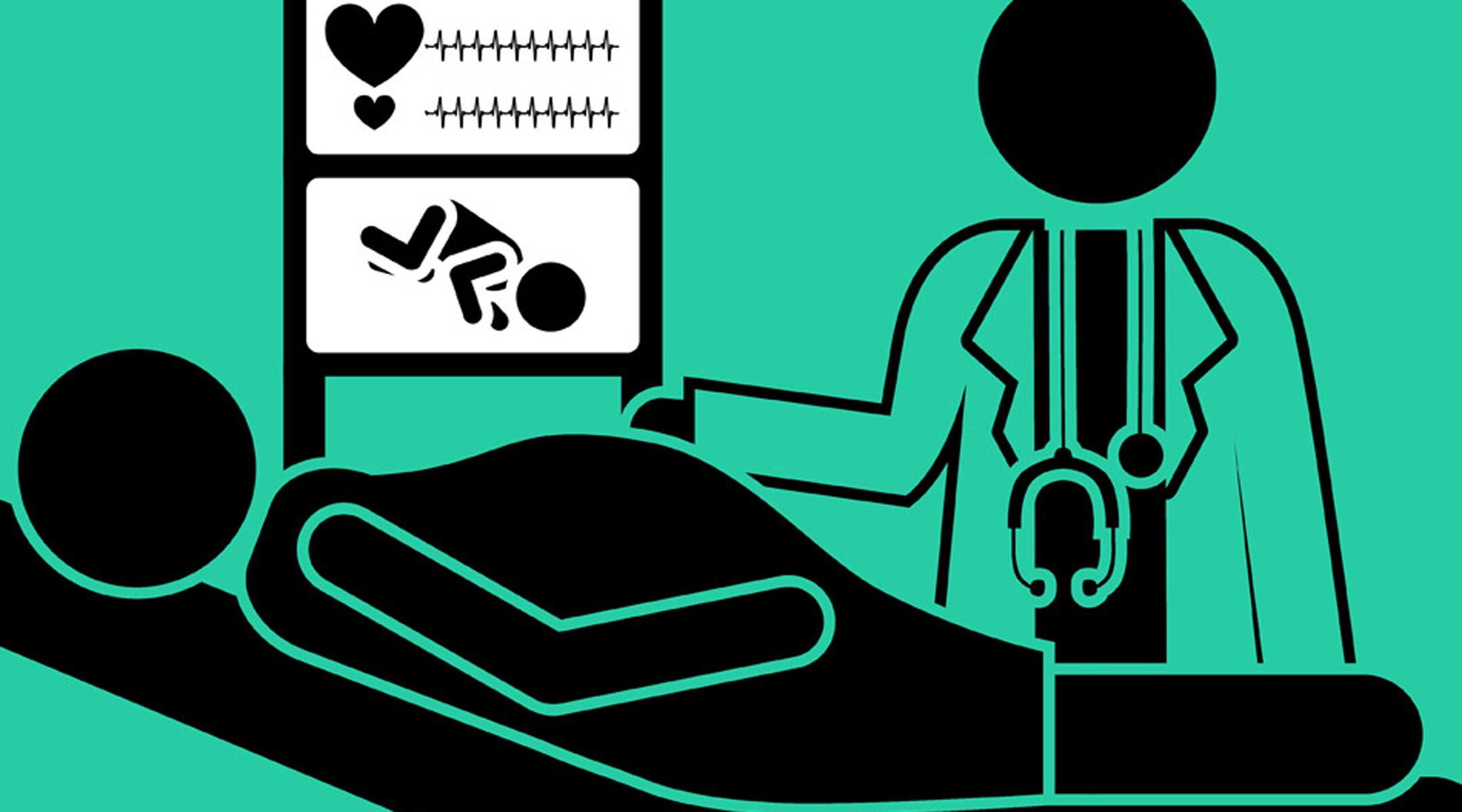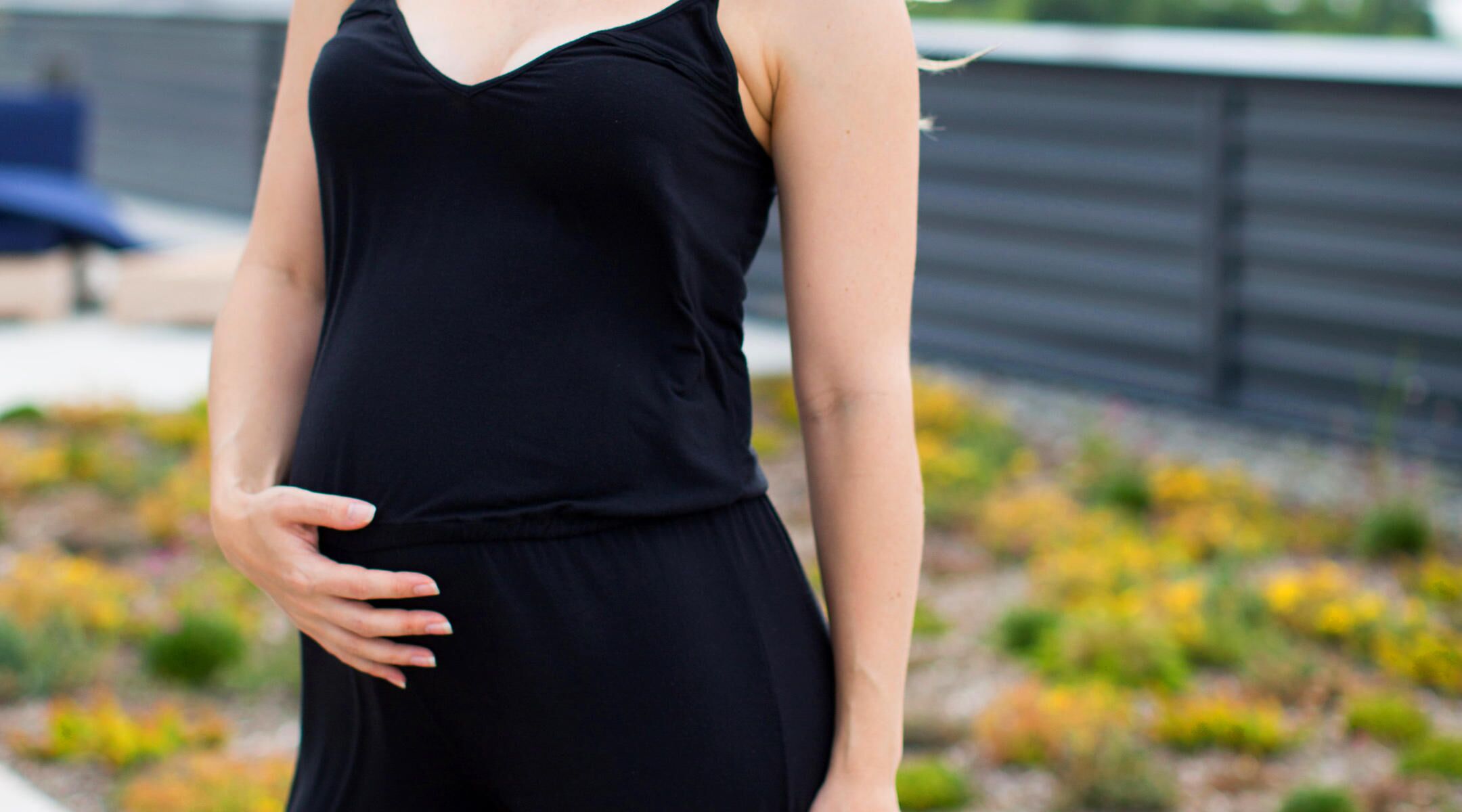What to Know About Weight Gain During Pregnancy
Weight gain during pregnancy is a natural and necessary process, but sometimes it can be a source of concern for expecting people. It’s understandable. Your body goes through massive changes during pregnancy, including weight fluctuations. If you’re newly expecting, it can be tough to know what’s normal.
It’s important to know that the number on the scale only tells part of the story. Gaining weight within a healthy range individualized to your body type can ensure the well-being of you and baby. So what’s a healthy amount of weight gain during pregnancy, and how can you find out if you’re on the right track? Read on for the answers, and check out our pregnancy weight gain chart.
Every pregnancy is unique, and what’s considered normal and healthy varies widely from expecting person to expecting person. That’s why you shouldn’t go through your pregnancy obsessing about a number. Instead, focus on maintaining a healthy lifestyle, eating a balanced pregnancy diet, and taking you-specific guidance from your provider.
According to the Centers for Disease Control and Prevention (CDC), the recommended healthy weight gain during pregnancy depends on pre-pregnancy weight. People who had a normal or average weight before pregnancy are typically advised to gain between 25 and 35 pounds. People who were underweight before pregnancy are advised to gain a little more, while those who were overweight are asked to put on a slightly smaller amount of pounds. The CDC says that only about 32 percent of people gain the recommended amount of weight during pregnancy, while 21 percent gain too little and 48 percent gain too much.
What does weight gain in pregnancy with twins look like?
If you’re expecting twins or multiples, you’re likely to gain more weight than someone having one baby. Essentially, your body is doing double the work to create double the humans, and your weight gain will likely reflect that.
If you’re having twins—and were at a normal weight pre-pregnancy—it’s recommended to gain 37 to 54 pounds, according to the CDC. People who were underweight should gain a little more than that, while those who were overweight should gain slightly less.
One way doctors figure out if you’re gaining a healthy amount of pregnancy weight is by taking your body mass index (BMI) and comparing it to the above pregnancy weight gain recommendations.
This pregnancy weight gain chart below uses your pre-pregnancy BMI, and provides a range of recommended prenatal weight gain. If you’re unsure how to calculate your BMI, take your weight in pounds and divide it by your doubled height in feet. Or, use an online BMI calculator.
It’s important not to take this chart as the be-all and end-all of pregnancy weight gain. Every pregnant person is different, and your healthcare provider should be able to provide answers that are tailored to your specific body and needs.
The timing of weight gain is unique from pregnancy to pregnancy. While you might gain a little weight in the first trimester, most expecting people really start noticing weight gain in the second trimester. “Some gain weight right away in the first few weeks and need to go into maternity clothes within one to two months of getting pregnant,” says Kristin Mallon, CNM, MS, RNC-OB, a certified nurse midwife with over 20 years of experience. “And some can go four to five months before they’ll need to change sizes.” There isn’t a one-size-fits-all answer.
Pregnancy weight gain by trimester
With new body changes and pregnancy symptoms popping up almost daily, it can be difficult to know exactly how much weight you should be gaining and when you should be gaining it. Let’s take a closer look at the timeline for normal weight gain during pregnancy, trimester by trimester.
First trimester: Weight gain is generally minimal in the first trimester. You’ll typically only gain 1 to 4.5 pounds, according to the American Pregnancy Association (APA). Symptoms like morning sickness and food aversions could get in the way of gaining weight. On the other hand, if you’re experiencing major cravings, you might gain more than expected. Both of these outcomes are completely normal at this stage.
Second trimester: Once the second trimester hits, morning sickness usually fades, and you might start getting more hungry. The APA notes that pregnant people can typically expect to gain 1 to 2 pounds a week during the second trimester, which means 14 to 28 pounds total during this time.
Third trimester: It’s normal to put on more weight during the first few weeks of your third trimester. The final growing stages of pregnancy require a lot of energy and an extra boost of nutrients. As you approach your due date, this may taper off a bit, and you might even lose some weight. You will gain an average of 1 to 2 pounds a week during the third trimester.
Wondering how you might gain roughly 30 pounds in pregnancy if the average baby only weighs about 7 pounds at birth? “Weight gain during pregnancy not only comes from baby’s weight, but also the placenta, increase in blood volume, amniotic fluid and increase in adipose storage for breastfeeding,” explains Shelly Chvotzkin, DO, a board-certified ob-gyn in Sarasota, Florida. Here’s a breakdown of where pregnancy weight comes from, according to the Mayo Clinic.
- Baby: 7 to 8 pounds on average
- Larger breasts: 1 to 3 pounds
- Larger uterus: 2 pounds
- Placenta: 1.5 pounds
- Amniotic fluid: 2 pounds
- Increased blood volume: 3 to 4 pounds
- Increased fluid volume: 2 to 3 pounds
- Fat storage: 6 to 8 pounds
Not gaining enough weight during pregnancy can be a cause for concern, as it can put you at risk for giving birth to a baby who is too small, according to the CDC. “The two major reasons women don’t gain enough weight in pregnancy are due to hyperemesis or an eating disorder,” says Mallon.
Hyperemesis gravidarum is a condition in which a pregnant person will experience excessive nausea or vomiting during pregnancy. This makes it very difficult to eat enough to support both your body and baby. With an eating disorder, the pregnant person and baby aren’t getting enough nutrients to thrive.
“Once a [person] starts to lose weight in the first trimester, usually more than 3 pounds, it becomes an issue and needs to be addressed,” says Mallon. Your provider will likely notice this weight loss at your routine checkups, discuss any additional testing and come up with a plan to keep you and baby healthy.
Gaining too much weight during pregnancy can also be a cause for concern. The Cleveland Clinic warns that excessive weight gain in pregnancy can increase the risk of gestational diabetes and preeclampsia. It could also result in a bigger baby, which means you’ll be more likely to have a c-section. If you’re gaining too much weight, your provider will likely notice this during your check-ups and create a plan based on your individual circumstances.
To move forward in a healthy way, your provider may recommend lifestyle changes to reach a desired weight. Chvotzkin gives some examples of these changes:
- Cut out empty calories from your diet like junk food, candy, cakes and soft drinks
- Eat a balanced diet with nutritional foods such as whole grains, vegetables, fruits, dairy and lean protein
- Stay active and increase physical activity throughout the day
You shouldn’t limit your food intake or start a strenuous exercise program without speaking to your doctor. This could cause complications for you and baby.
Bottom line: Try not to focus on the scale too much. Instead, concentrate on aiming for a healthy lifestyle and a balanced diet. At your regular prenatal appointments, your doctor will monitor your weight gain and let you know if anything is off. Otherwise, remember that it’s just a number.
Please note: The Bump and the materials and information it contains are not intended to, and do not constitute, medical or other health advice or diagnosis and should not be used as such. You should always consult with a qualified physician or health professional about your specific circumstances.
Plus, more from The Bump:
Kristin Mallon, CNM, MS, RNC-OB, is a passionate board-certified nurse midwife with over 20 years of experience in women's health. She is also the co-founder at FemGevity.
Shelly Chvotzkin, DO, is a board-certified ob-gyn with over 20 years of experience. She helps patients and parents find answers about their family’s health through JustAnswer.com. She received her medical degree from the Philadelphia College of Osteopathic Medicine.
Centers for Disease Control and Prevention (CDC)
online BMI calculator. American Pregnancy Association (APA)
Learn how we ensure the accuracy of our content through our editorial and medical review process.
Navigate forward to interact with the calendar and select a date. Press the question mark key to get the keyboard shortcuts for changing dates.

































